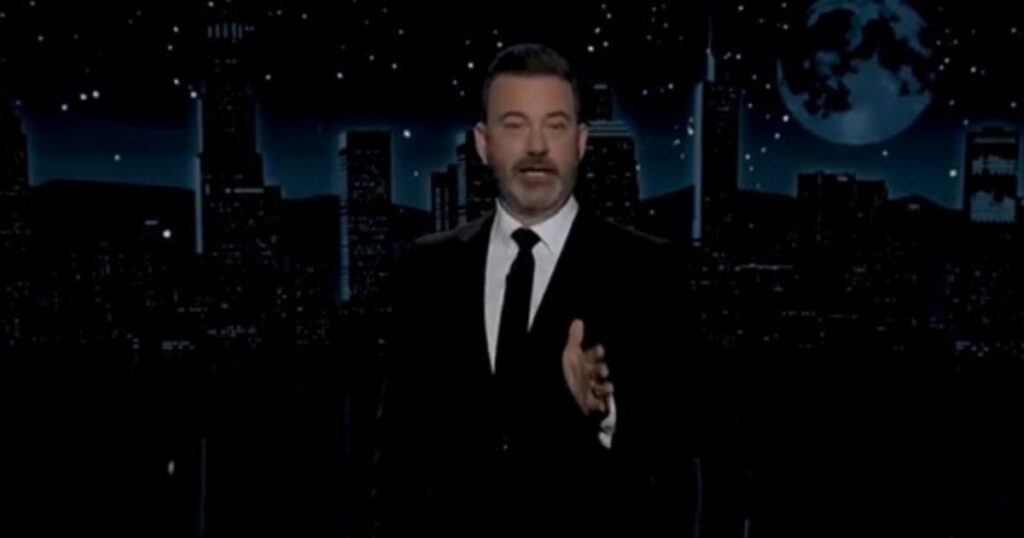In a recent incident on his late-night show, Jimmy Kimmel has ignited controversy with a joke that some believe constitutes a form of voter suppression aimed at Trump supporters. The situation reflects broader concerns among conservatives about alleged efforts by the radical left to manipulate electoral outcomes, particularly as the presidential election approaches. Reports have surfaced, particularly from platforms like The Gateway Pundit, detailing various tactics said to be employed by Democrats to disenfranchise Republican voters. This narrative includes instances where individuals allegedly masquerade as election officials, early shutdowns of voting lines, and even arrests of Republican delegates for encouraging voters to stay in line.
During his monologue on “Jimmy Kimmel Live!” Kimmel made a dubious suggestion to his audience: Trump supporters should wait until after Election Day to cast their votes. He awkwardly told attendees, “If you want to vote for Trump, vote late. Vote very late,” implyinig that they should wait until Thursday or Friday. This comment was made knowing full well that Election Day is designated for a Tuesday, rendering his suggestion effectively advice not to vote at all if one intends to support Trump. Critics have labeled Kimmel’s remarks as election interference and an irresponsible joke amidst a fractious political scene.
The backlash to Kimmel’s comment wasn’t limited to partisan fans; it was echoed by figures in the conservative media. One notable response came from Douglass Mackey, a pro-Trump meme creator convicted for his actions during the 2016 election. Mackey referenced his own legal troubles stemming from an election-related joke and questioned if Kimmel would face similar repercussions. Mackey had faced a hefty legal battle for allegedly misleading Black voters to abstain from voting through social media. His conviction was characterized by many as an example of overreach and selective enforcement of electoral laws, fueled by political bias.
Mackey utilized Kimmel’s joke to highlight perceived disparities in how the legal system treats individuals based on their political affiliations. “When I made an election joke, the Deep State used it as a pretext to conduct a fishing expedition against me,” he stated, indicating that Kimmel’s humor would likely not elicit the same legal scrutiny. This assertion reinforces the sentiment among conservatives that there exists a double standard when it comes to accountability within American political discourse.
As Kimmel’s joke continues to draw fire, it illustrates the polarized and contentious climate surrounding political expression leading into a pivotal election cycle. On one end, the accusation is that late-night shows, often seen as bastions of liberal thought, are crossing a line when they engage in humor that could intentionally mislead voters. Critics warn that comedy can blur the lines of responsibility, especially when it comes to issues as critical as voting. As more voices enter the fray, this event underscores the increasingly complex relationships between comedy, politics, and voter participation.
Overall, the unfolding story around Kimmel’s alleged voter suppression joke serves as a microcosm of the broader tensions and fears that characterize the current American political landscape. With the election looming, the implications of such remarks could reverberate beyond the stage, possibly influencing public perceptions of voter integrity and the necessity of protecting democratic processes. To many, this incident raises fundamental questions about the responsibilities of media figures, the integrity of election practices, and the lengths to which parties will go to secure electoral advantage.

